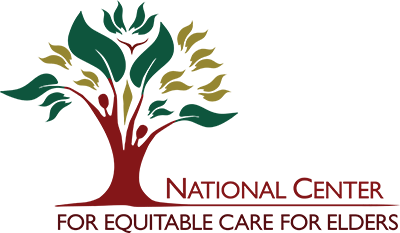 For National Family Caregivers Month, we sought advice from Columbia University Department of Medicine’s Division of Geriatric Medicine and Aging physician Bindhu Thomas, M.D., to help your health center support and empower family caregivers of your older adult patients.
For National Family Caregivers Month, we sought advice from Columbia University Department of Medicine’s Division of Geriatric Medicine and Aging physician Bindhu Thomas, M.D., to help your health center support and empower family caregivers of your older adult patients.
“In the population we serve, the families are eager enough to help their loved ones, but do not always have the health literacy,” she said. “As always, knowledge is power. One incredibly important thing we can do is to educate the caregivers what the medical issues are, how they impact their loved ones, and how to deal with them tactfully. Geriatric medicine is not a cookie-cutter phenomenon. We must look at all the issues that interplay; it’s that moment of realization that we cannot just allude to an algorithm to provide care for our older adults.”
Dr. Thomas seeks to dispel the notion that an older adult patient’s signs and symptoms would be treated in the same way as a younger patient. “For example, in older adults, we know kidney function decreases as they age. The kidneys are not working the way they used to, and the families are flabbergasted because no one has ever informed them of this,” she said. “Education of caregivers involves teaching families how illnesses will manifest in their loved ones and treatment of this eventual renal failure is not just simply referring the patients for dialysis. It may lead to a discussion of quality of life, and even end of life.”
Dr. Thomas advocates that clinicians and caregivers alike be kind and patient to older adults. In her experience, patients ranging in age from their 70s to 100 years old seek new physicians because they perceive their doctor doesn’t have time for them.
“I had a patient who was 80 years old with a whole gamut of problems seeking a new physician after not being treated ‘properly’ by their previous physician,” she said. “When I start off the visit, I ask, ‘what is the purpose of this visit and how can I help you?’ A lot of the problems they come in with are chronic and probably not curable. They present a list of problems, and we try to focus on the top-3 that bothers them the most and try to work on that. We try to lessen the burden of those issues presented and lessen the disease burden with realistic goals.”
As trust is established, Dr. Thomas seeks to educate patients and their families about the aging body. “Patients and caregivers can come in with their own preconceived notions, but it’s our responsibility as geriatricians to guide them through what is real and not real for their loved ones,” she explained. “Homeostenosis goes out of the window as we age, as there are multiple failing organs, brains with atrophy leading to cognitive impairment, as well as failing eye sight, hearing, and oral health issues. As the overall function in a patient is affected, any acute illness or event would put them on a lower level of functioning. In geriatrics, we are more worried about their function and we are obligated to ask what has changed in function since the last time we met.”
Geriatricians must assess what is available to help patients with dementia function better. “One of the things we’ve found is that families must be heavily involved with administering medication,” she advised. “A patient was admitted because the family caregiver – even though they prepared the pill box and organized the medication from Monday through Sunday – ended up taking additional medications. Unfortunately, the patient had forgotten she had already taken that day’s medication and needed to be brought into the ER for overdose. Caregivers cannot simply prepare a pill box and then leave them be; it has to be family administering medications.”
“Additionally, we ask that families accompany their loved ones for appointments. A home attendant may not understand and communicate everything to the family member. We also ask family members to bring in all medication bottles, both prescriptions and over the counters, to every appointment. Patients may have their geriatrician, cardiologist, neurologist, and nephrologist prescribing medications. Since we may not know all the changes in medications, we encourage all patients to bring in medication bottles.”
For additional resources, check out our recent publication with MHP Salud, entitled Aging in Place: A Resource for Health Centers and be sure to keep an eye out for our upcoming issue brief, Supporting Informal Caregivers of Your Older Adult Patients.
